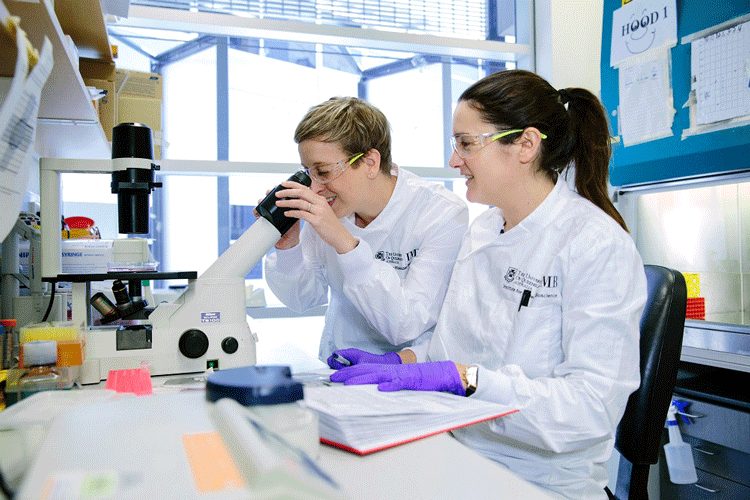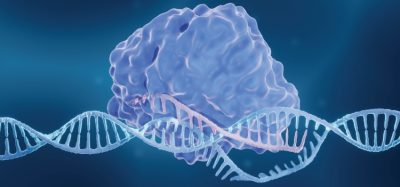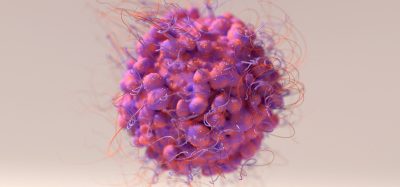Researchers take a leap forward for new anti-inflammatory drugs
Posted: 13 May 2019 | Drug Target Review | No comments yet
Treatments for chronic inflammatory diseases are one step closer as a new study discovers a way to stop inflammation in its tracks.

Associate Professor Kate Schroder and Dr. Rebecca Coll from UQ's Institute for Molecular Bioscience are working towards the anti-inflammatory drugs of the future. CREDIT University of Queensland
The study was led by Associate Professor Kate Schroder and Dr Rebecca Coll from University of Queensland’s (UQ) Institute for Molecular Bioscience and Professor Avril Robertson from UQ’s School of Chemistry and Molecular Biosciences. It will inform the design of new drugs to stop the formation of a protein complex, called the inflammasome, which drives inflammation.
Dr Coll, who is a lecturer at the Wellcome-Wolfson Institute for Experimental Medicine at Queen’s University Belfast, said the inflammasome was important in protecting our bodies from infection, but is also a key driver of unhealthy inflammation: “Inflammation helps our bodies heal following infection, but when the inflammasome is not switched off, inflammation becomes damaging,” she explained. “Uncontrolled inflammation results in chronic diseases, such as Parkinson’s disease, Alzheimer’s disease and respiratory diseases such as asthma.”
Associate Professor Schroder said the team’s exciting discovery gave new insight into how to stop inflammation at the molecular level: “We previously identified a small molecule, MCC950, that inhibits the inflammasome to block inflammation in disease but, until now, we did not understand how it worked,” she said. “We discovered that MCC950 binds directly to the inflammasome and inactivates it, turning off inflammation.
“Now that we understand how a small molecule can inhibit the inflammasome, we are very excited about the potential of inflammasome inhibitors as anti-inflammatory drugs.”
Professor Robertson added: “We are keen to see results of these trials and hope that our discovery can lead to the efficient design of new molecules as anti-inflammatory drugs of the future.”
The research was published in the scientific journal Nature Chemical Biology.
Related topics
Analysis, Hit-to-Lead, Research & Development
Related conditions
Alzheimer’s disease, Asthma, Parkinson's disease
Related organisations
Queen's University Belfast, Queensland University







